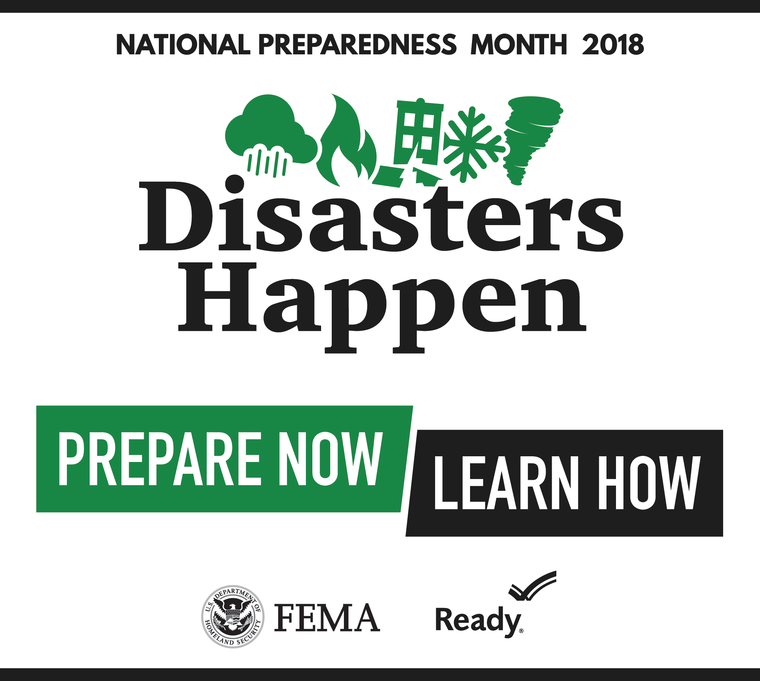
‘Disasters Happen. Prepare Now. Learn How.’
By Brad Salzmann
Physician Assistant
Each year, thousands of federal, regional, and local governments along with public and private agencies and institutions support emergency preparedness* efforts. Americans are encouraged to be prepared to take action before, during, and after an emergency. Any preparedness actions you take will improve your ability to endure a disaster; to assist family, friends, and neighbors; and to reduce the burden on responders.
A different action is recommended each week of September during National Preparedness Month 2018, the theme of which is “Disasters Happen. Prepare Now. Learn How.”
Week 1 is dedicated to Making and Practicing a Disaster Plan. Plans should include communication planning, evacuation planning, and sheltering in place, at the least. Emergency plan ideas are available on many web sites, including ready.gov.
In addition to developing a plan, you can sign up for alerts and warnings. Vermont Emergency Management (VEM) has an excellent, robust warning system in place called “VT Alert.” Anyone can sign up for alerts via text, phone, or email, and via TTY/TDD devices. Users can tailor the types of warnings and receive alerts for up to five locations. Many towns now can use VT Alert for town-wide alerts, much like a Reverse 9-1-1 system. For more information and to sign up, visit vem.vermont.gov/vtalert.
Week 2 is dedicated to Learning Lifesaving Skills. Know basic lifesaving skills and basic home maintenance to protect your family and home. Learn how to turn off utilities and hang a tool nearby if needed. Install and/or check smoke and carbon-monoxide detectors. Back up or protect important documents.
Sept. 15 is National Day of Action. This is a good day to hold or participate in a preparedness event, such as a CPR class, in your neighborhood. To learn about community preparedness events across the country, visit community.fema.gov.
Week 3 is dedicated to Checking Your Coverage. Review your insurance coverages. Remember, homeowners and rental insurance policies do not cover flood damage. Visit floodsmart.gov to learn about flood insurance for your home or business. Make sure your insurance information is backed up or otherwise accessible.
Week 4 is dedicated to Saving for an Emergency. Make financial plans for the possibility of disaster. Prepare for how you will pay critical bills if local banks, financial institutions, ATMs, Internet, and phone lines are nonfunctional. Have some cash on hand in small bills. Make sure you have backup accessibility to important financial information.
For more information about emergency preparedness, visit ready.gov.
Gifford PA Brad Salzmann is a Disaster Medical Assistance Team (DMAT) member. DMATs are deployed by the National Disaster Medical System to provide medical care during emergency situations, such as natural disasters or large-scale national security events.
***
*Emergency Preparedness at Gifford
Gifford is currently undertaking several initiatives in order to better prepare our staff and community for emergency situations. Our dedicated Emergency Preparedness team is working hard to streamline policies and procedures so that we are ready for action in times of crisis. Team members include Megan Parker, project supervisor, facilities; Stuart Edson, emergency preparedness coordinator; and Doug Pfohl, vice president of support services.

